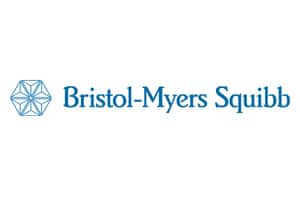 The EU drugs regulator has started its review of Bristol-Myers Squibb’s PD-1 inhibitor Opdivo in Hodgkin’s lymphoma, which could be the first haematological cancer indication for a checkpoint inhibitor drug.
The EU drugs regulator has started its review of Bristol-Myers Squibb’s PD-1 inhibitor Opdivo in Hodgkin’s lymphoma, which could be the first haematological cancer indication for a checkpoint inhibitor drug.
BMS is seeking approval of Opdivo (nivolumab) for the treatment of classic Hodgkin’s lymphoma (cHL) in patients who have already undergone prior therapies for the disease. The EMA has validated the application, which confirms the submission is complete and begins the agency’s centralised review process.
The filing is based on the results of the phase II CheckMate -205 trial, which tested Opdivo in cHL patients who had previously received an autologous stem cell transplant (ASCT) and treatment with Seattle Genetics/Takeda’s Adcetris (brentuximab vedotin).
In patients with cHL, initial treatment typically consists of chemotherapy and/or radiotherapy, followed by an ASCT if the disease recurs. For those who relapse within one year after receiving a standard of care like ASCT, the median survival is only 1.3 years after progression.
The results of the study have not yet been presented but an earlier phase Ib study – reported at the end of 2014 – found that the drug achieved an 87% overall response rate in this patient group with complete remission seen in four patients (17%) and a partial response observed in another 16 (70%). The FDA has awarded Opdivo breakthrough status in this indication.
Opdivo is already approved to treat solid tumours – melanoma, non-small cell lung cancer (NSCLC) and renal cell carcinoma – but EMA approval in cHL would “provide haematology with its first PD-1 inhibitor”, said BMS’ global oncology clinical lead Jean Viallet.
Rival therapy Keytruda (pembrolizumab) from Merck & Co is also being developed for cHL and is currently in a phase II trial in this indication.
cHL is less common than non-Hodgkin’s lymphoma (NHL) but around 12,200 cases are diagnosed each year in the EU, causing the deaths of some 2,600 people, and approval in this setting could lend additional momentum to Opdivo’s already buoyant growth.
Opdivo brought in $942m in worldwide revenues in 2015 – the bulk of which ($823m) came from the US. The drug was approved in Japan in mid-2014 and in the US just before the end of that year, with EU registration taking place in January 2015. Keytruda brought in $566m over the same period in its approved indications of melanoma and NSCLC.




